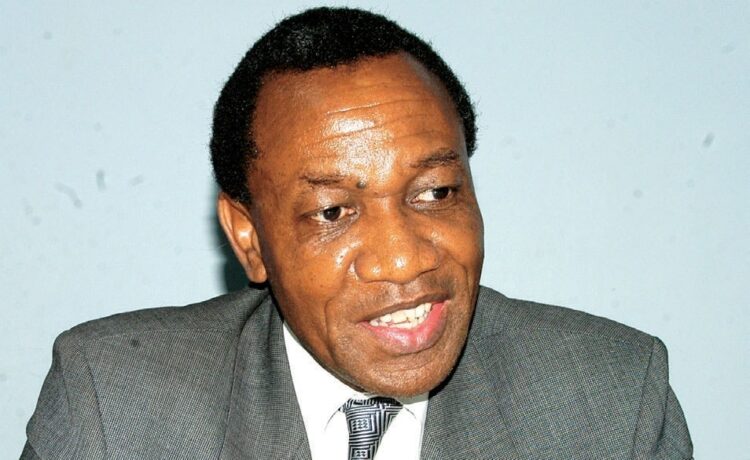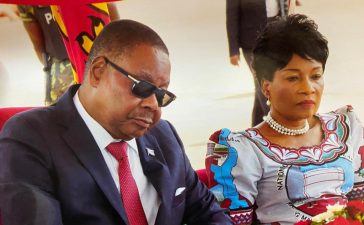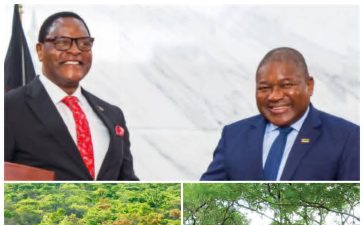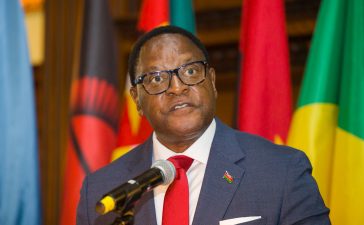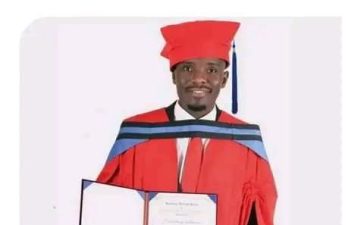On Friday, 10 September 2021, the High Court found local magnate Dr Thomson Mpinganjira guilty of attempting to bribe Constitutional Court judges who were ruling on the disputed 2019 presidential election.
Mpinganjira, the founder of FDH Bank, was arrested in January 2020 by the Anti-Corruption Bureau (ACB) after Chief Justice Andrew Nyirenda reported he had attempted to bribe the judges.
Mpinganjira was accused of offering judges MK100 million (about USD123,000) so that the court case over the disputed 2019 presidential election would end in favour of then-president Peter Mutharika.
He pleaded not guilty to six bribery-related charges.
But High Court Judge Dorothy DeGabriele said the prosecution, led by current Solicitor General and former ACB Director General Rayneck Matemba, proved beyond a reasonable doubt that Mpinganjira wanted to bribe the five judges.
“The Court found the accused person under count 1 and 2 for offering an advantage to Justice [Healey] Potani and Justice [Michael] Tembo who were public officers and for the benefit of that advantage to be shared amongst the judges, to induce the judges to make a decision in favour of the respondent. The accused person is hereby convicted accordingly,” DeGabriele.
Mpinganjira’s lawyer, Tamando Chokotho, asked the Court to consider giving his client noncustodial punishment, saying his client is a first offender, a responsible man and a lot of other crap that Reyneck Matemba quickly, some would say, effectively rebutted.
As far as Matemba is concerned, if there ever was a case for a custodial sentence, this one is it.
Reasons? Galore.
As per Matemba:
“The defendant is not an upright man, so his personality should not be considered”;
“We are told he is a family man, he should have known this before doing what he was doing”;
“We are told he is an old man, but he should have known that first”;
“I don’t want to imagine, the chaos, the bloodshed that could have happened if he succeeded”;
“The convict wanted to use his power and wealth to manipulate justice, that should not be tolerated”;
“Let this one be a reminder to the rich, the powerful that their money and power will not be above the law”;
“He made an accusation against you (Judge Dorothy DeGabriele) and Justice Kalembera, so for the accused to talk of remorse it is unbelievable”;
“He told this court that he runs a trust, a bank with which he does charity, but he told the nation that he resigned being involved with the operations of this bank, and the trust has other trustees”;
“He talked of Mighty Wanderers football club. On that one, I will not speak much; I see the team’s supporters around. Not that I fear them, but his decision to sponsor the team was just an afterthought”;
“And again on mitigation that the convict is remorseful, he could not have wasted court’s time to go through the long trial process, and waited to be convicted before accepting remorse”; and
“The sentence of this offence is 12 years. A suspended sentence does not apply to this matter. We ask the Court to pass a custodial sentence, one which will show the seriousness of the offence he committed”.
Summing it all up, “What the convict wanted to do, the offence he has committed, is severe. He wanted to defeat the course of justice in one of the most high-profile cases in this country, ever,” Matemba concluded.
As we speak, Mpinganjira, with bail revoked, receives mail C/o Chichiri Prison, Blantyre, where he awaits sentencing.
Now, Mpinganjira’s just desserts are dividing opinion.
On the one hand, a school of thought mainly comprising followers of the man he was allegedly trying to buy the judgment for, former president Peter Mutharika, finds it fitting, right and proper to hold within their heart of hearts that Mpinganjira has been unjustly hurt.
On the other hand, another school of thought believes that the conviction is just for starters; the main dish will be served when DeGabriele metes a lengthy deterrent sentence.
Whatever your view, Mpinganjira’s road now blocked; we must also look before and beyond this monumental case.
Starting with the “before”, there are other equally high profile cases whose logical conclusions remain elusive.
I can cite three.
Former president Bakili Muluzi’s MK1.7 billion corruption case Criminal Cases number 1 and 2 of 2009 have been inundated with adjournments, detours, and, to be honest, interruptions that don’t sound convincing.
Then there is the MK2.4 billion Cashgate case involving former Ministry of Finance budget director Paul Mphwiyo and 18 others. If truth be told, this case’s adjournments raise doubts about the involved parties’ seriousness to put this matter to rest.
The third is Zameer Karim’s case. Zameer is alleged to have defrauded the Ecobank of K850 million by obtaining a fraudulent loan using Malawi Police Service (MPS) guarantee and is allegedly involved in the procurement of K2.7 billion meant for food rations for MPS personnel after Pioneer Investments won the tender in 2015.
While the same judiciary has swiftly dispensed with Mpinganjira’s case with more or less same or similar prosecutors and defence counsels and all of them corruption-related, these three examples, and more, are taking ages.
For all we know, these three cases could potentially drag on until kingdom come!
When one considers why there has been little progress on these cases when Mpinganjira was not accorded the luxury of fooling around forever like the suspects in these three and other cases, one cannot help but sympathise with Mpinganjira.
Has he been picked on because he dared throw stones at Court while in possession of contraband, if I may put it figuratively?
I find this baffling.
While I want to applaud all parties involved for sparing us painfully waiting for justice vis-à-vis Mpinganjira’s case, I am flabbergasted that the same institution and same lawyers seem happy to let other equally high profile cases proceed at a snail’s pace.
Mind you, I have not touched on the hundreds of arrests made under the current Tonse Government.
If those three old cases are anything to go by, we should expect no progress on Tonse Government initiated cases until 2026.
This is outright unfair. Unjust. Some might say this smacks of unprofessionalism on the part of those actively delaying justice because when all has been said and done, as noted by Martin Luther King, Jr (or is it William Gladstone?), justice too long delayed is justice denied.
Therefore, going forward, I would plead with the judiciary to please let justice flow swiftly like a river and righteousness like a never-failing stream for all.

